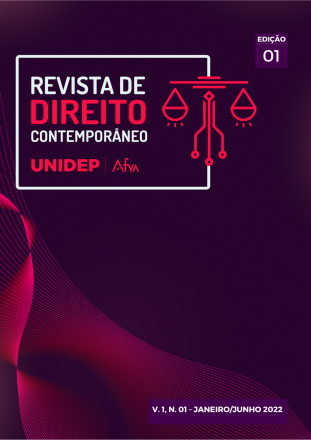FALSAS MEMÓRIAS, RACISMO ESTRUTURAL E A UTILIZAÇÃO DO RECONHECIMENTO FOTOGRÁFICO NO PROCESSO PENAL
Revista de Direito Contemporâneo UNIDEP
FALSAS MEMÓRIAS, RACISMO ESTRUTURAL E A UTILIZAÇÃO DO RECONHECIMENTO FOTOGRÁFICO NO PROCESSO PENAL
Autor Correspondente: Wellynton Pizato | [email protected]
Palavras-chave: Direito Processual Penal, falsas memórias, racismo estrutural, reconhecimento fotográfico
Resumos Cadastrados
Resumo Português:
Este artigo busca caminhar com os estudos da psicologia das falsas memórias, com intenção de quebrar crenças construídas sobre como funciona a memória humana, algo extremamente complexo, que é objeto de estudo da psicologia por mais de trinta anos. Ainda, para além das falsas memórias, o presente trabalho busca aliar-se aos estudos sociais acerca do racismo estrutural com intenção de trazer à luz os motivos pelos quais a interpretação e utilização prática do reconhecimento de pessoas, especificamente no que tange ao uso do reconhecimento fotográfico, em sede de investigação policial, tem como resultado potencial geração de injustiça social, especialmente de cunho racial, sintetizando um sistema de punibilidade injusta de pessoas inocentes, em sua maioria, jovens, pretas e vulneráveis. A redação legislativa em foco é trazida pelo Art. 226, do Código de Processo Penal, cuja interpretação e aplicação resultou na condenação injusta de parte da população, em especial, a acima descrita, e, por isso, é tema grandemente discutido pelos tribunais e doutrina.
Resumo Inglês:
This article seeks to walk with the studies of the psychology of false memories, with the intention of breaking beliefs built on how human memory works, something extremely complex, which has been the object of study of psychology for more than thirty years. Furthermore, beyond false memories, the present work seeks to ally itself with social studies on structural racism with the intention of bringing to light the reasons why the interpretation and practical use of the people recognition, specifically with regard to the use of photographic recognition, in the context of police investigation, has the potential to generate social injustice as a result, especially of a racial nature, synthesizing a system of unfair punishment of innocent people, mostly young, black and vulnerable. The legislative wording in focus is brought by Art. 226, of the Criminal Procedure Code, whose interpretation and application resulted in the unjust conviction of part of the population, especially the one described above, and, therefore, is a topic widely discussed by the courts and doctrine.

